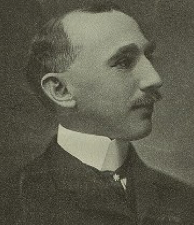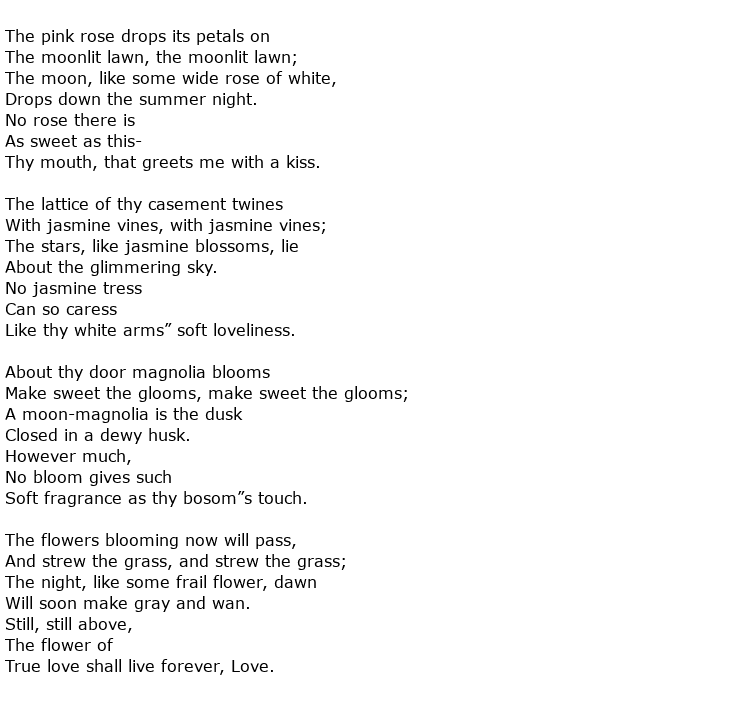 Madison Julius Cawein was an American poet, novelist and playwright whose poetic style led to his being referred to as the “Keats of Kentucky”.
Madison Julius Cawein was an American poet, novelist and playwright whose poetic style led to his being referred to as the “Keats of Kentucky”.
He was born on the 23rd March 1865 in Louisville, Kentucky, the son of a herbalist. His education did not extend beyond high school and his first place of employment was in an establishment that doubled up as both pool hall and gambling house. He saved much of his pay as a cashier with the intention of giving up this work in due course, in order to become a full time writer. He did, indeed, achieve that ambition and by the age of 35 he was earning around $100 per month from his published works and a number of pieces that had been submitted to various periodicals.
His literary output was substantial, numbering 36 published books and well over a thousand poems. He was inspired by the likes of John Keats and Percy Bysshe Shelley and the language used in his poetry was reminiscent of their work and other European writers. His early appreciation of the natural world, first instilled into him by his father, manifested itself in a lot of his work and he also dipped into areas such as classical allusion and mythology. Examples of this style of work were found in his first collection, published in 1887, called Blooms of the Berry. Poems of Nature and Love came out in 1893 and another book of verse called Myth and Romance appeared in 1899.
Here is a good example of his lyrical verse, a poem called In the Garden which describes in great detail the beauty of a typical garden, alluding to the romance of nature at the same time:

His work won him international recognition but his fame would not last. Eventually other writers bypassed him, perhaps leaving Cawein’s name amongst the list of obscure, possibly outmoded American writers. Some literary critics have suggested that one of his pieces of work, published in the January 1913 edition of Poetry magazine in Chicago, under the title Wasteland, was the inspiration for T S Eliot to produce his seminal piece of a similar name – The Wasteland. Eliot’s came nine years later and it was generally acknowledged to be the first example of modernism in poetry. In truth though there is very little similarity between the two pieces of work, other than the titles.
Cawein seemed to be relatively comfortably off during the early years of the 20th century. He was a prolific writer and popular with it, making a good living from his work. Unfortunately, like so many others, he suffered the effects of the stock market crash of 1912 and found himself in financial trouble. He lost his house and much of his library of books. He had to seek relief from the Authors Club of New York City who placed him on their list of needy writers during the year 1914. It is possible though that the strain brought about by his changed circumstances brought about his early death that same year.
Cawein had married Gertrude McKelvey during the summer of 1903 and they had one child, a boy name Preston. Besides his substantial collection of poems he published a book of drama called The Shadow Garden and other plays in 1910 and one work of fiction called The Poet and Nature and The Morning Road, published the same year.
Madison Julius Cawein died on the 8th December 1914 at the age of 49.

